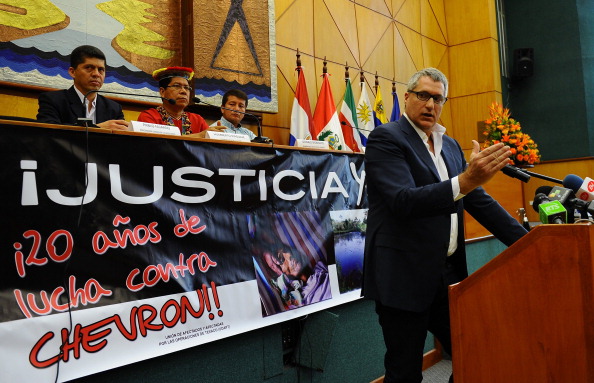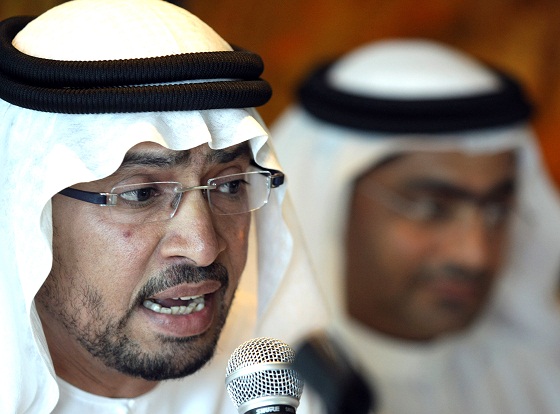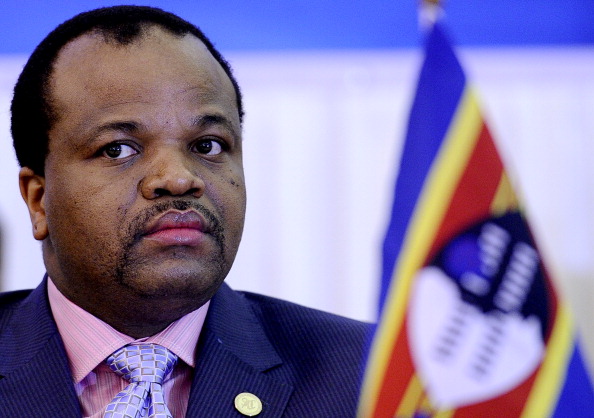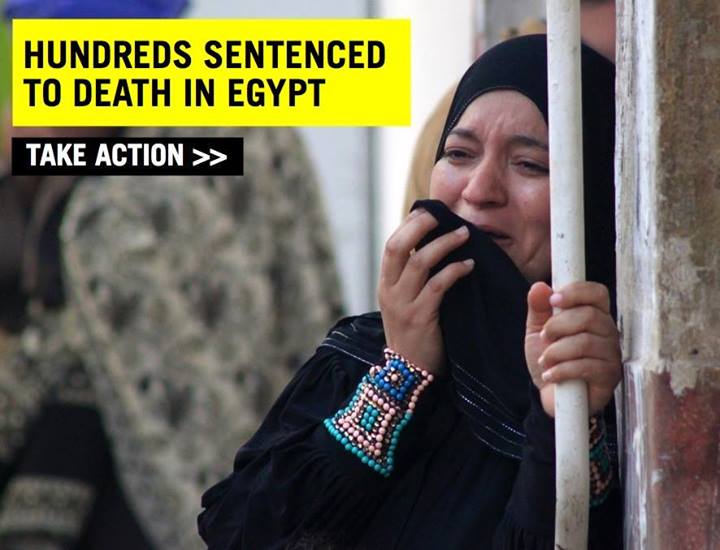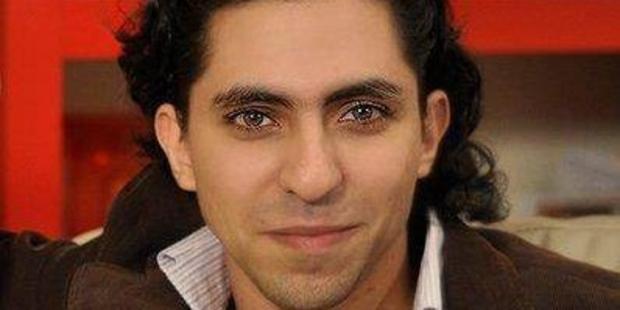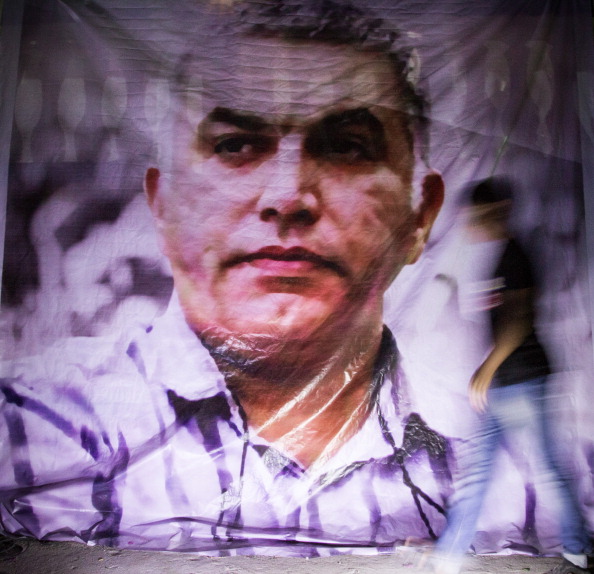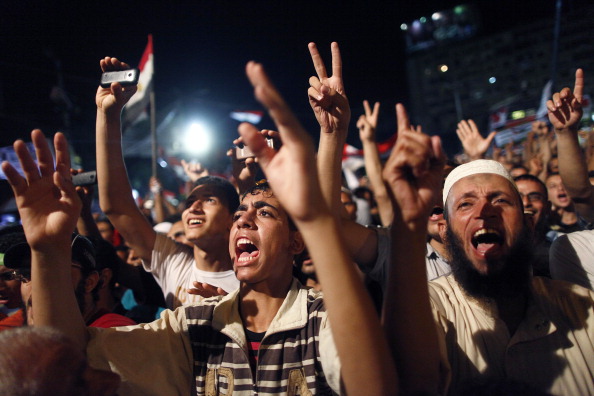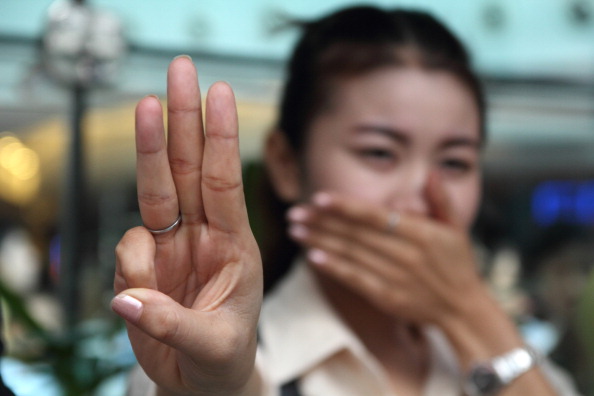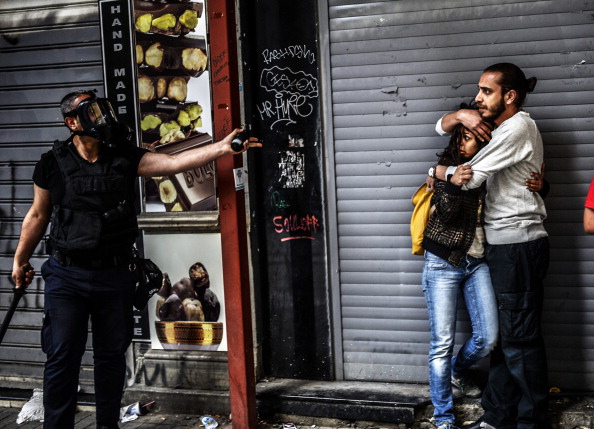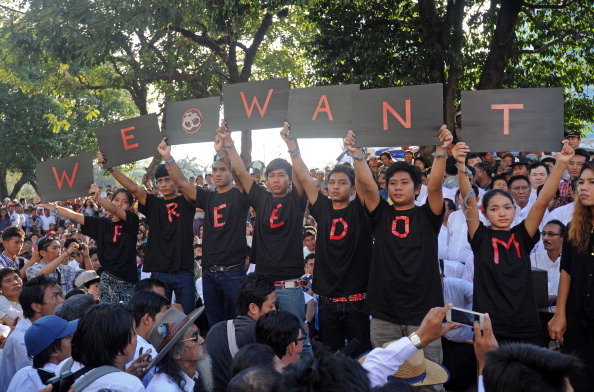
A group of protesters call for the abolition of repressive laws and an end to politically related arrests in Yangon on January 5, 2013. Thousands joined a rally in Myanmar’s main city to call for the abolition of repressive laws and an end to politically related arrests (Photo Credit: Soe Than WIN/AFP/Getty Images).
The veneer of progress is wearing thin in Myanmar. A year ago, the President of Myanmar, Thein Sein, promised to release all prisoners of conscience. Earlier this year, to mark Myanmar’s Independence Day, the President ordered the release of thousands of prisoners. Now one year on from the promise to release all prisoners of conscience, the promise remains unfulfilled. Even more troubling is the fact that the government is arresting more prisoners of conscience.
